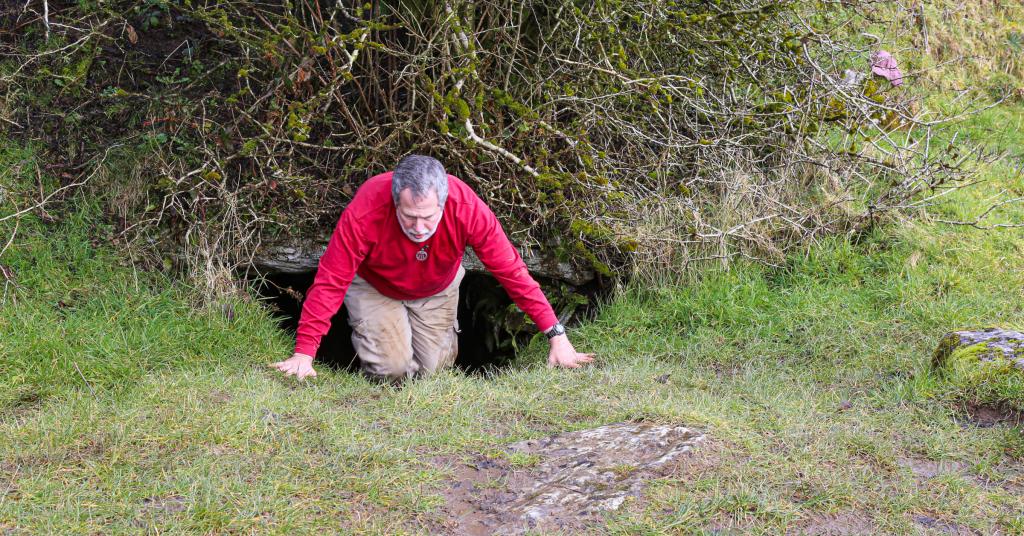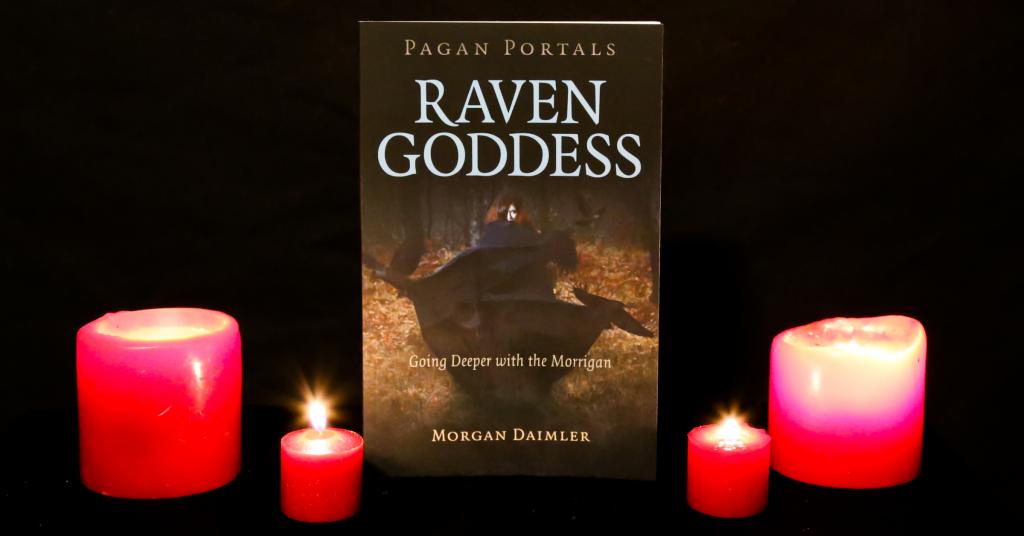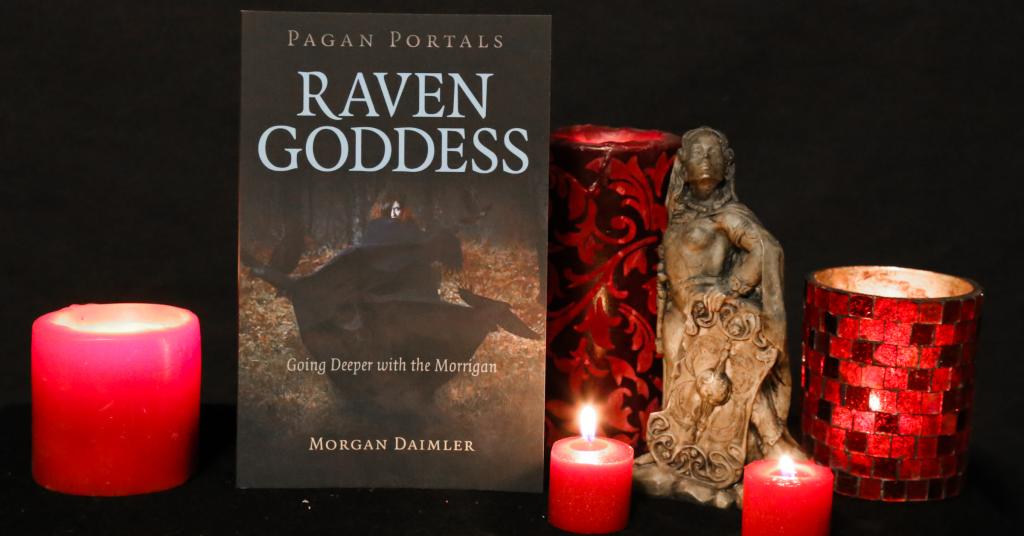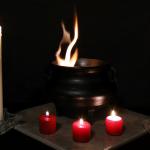Raven Goddess: Going Deeper with the Morrigan
by Morgan Daimler
Moon Books – October 2020
104 pages
Paperback: $10.95. Kindle: $6.49
I’m rather late getting a review done for this book (sorry, Morgan), but don’t let my negligence give you the impression this is a book I “conveniently forgot to review.” This is an excellent addition to the references available on the Great Queen and I highly recommend it.
The Morrigan is the Irish Goddess of sovereignty, of battle, and of the aftermath of battle. She is perhaps the most active deity in our world today. I’ve been hearing about Her for a decade, and hearing directly from Her for almost as long. She calls different people to do different things for Her, and although She is best known as a Battle Goddess She calls people to be more than warriors.
Unfortunately, these calls don’t come with an instruction manual. The Morrigan is big on telling people what She wants them to do for Her and not very big on explaining who She is. And while there are a few good resources on the Morrigan, there are many others rooted in pop culture and other ahistorical sources.
I’m often asked for book recommendations. I’ve been recommending The Morrigan: Meeting the Great Queens by Morgan Daimler ever since it was published late in 2014. It’s one of Moon Books “Pagan Portals” series of short introductory works – it’s a summary of the literary and etymological sources we have for the Morrigan. It’s not a book that tells you everything you need to know about Her, but it’s a good introduction and it points you toward the sources you need to read for yourself if you feel called to Her.
Raven Goddess: Going Deeper with the Morrigan is the follow-up book. It’s also part of the Pagan Portals series, so it’s short and easy to read. More importantly, it focuses on clearing up some of the misconceptions and misinformation about the Morrigan.
The first of those misconceptions is the idea that the Morrigan isn’t really a Goddess. Daimler shows that the words used for Her in the original Irish are those used for a divine person, and that there is at least one reference of someone praying to Her. The Morrigan was understood to be a Goddess in ancient times, just as She is today.
And then there’s the misconception that Morgen le Fay (from the Welsh Arthurian stories) is another form of the Morrigan. To quote Daimler “the short answer is historically there’s no connection between the Morrigan and Morgen le Fay.” The names are similar in English, but “in Irish and Welsh the two names sound very different.”
There’s a whole chapter on The Morrigan and Cu Chulainn. As Daimler says:
There is possibly no subject relating to the Morrigan that causes more confusion or contention than that of the relationship between the Morrigan and Cu Chulainn.
Daimler provides their own translation of the Irish texts, which clears up some problems in earlier translations. More importantly, Daimler says:
I personally don’t think the proclamation of love or offer to help him are genuine, but you can decide for yourself.
I have previously interpreted this story as telling us that when a Goddess offers Her help you should take it. This translation is forcing me to reconsider that.
I appreciate the discussion of sovereignty, especially the realization that its meaning has changed in a society that is no longer ruled by kings who marry the land.
We each have the capacity to be completely in control of ourselves and our own actions, to live by choice and not by chance, and in doing so to live in right relation to the Goddess of Sovereignty and earn her blessing in our life.
I really appreciate the rejection of the Morrigan as either a Mother Goddess or as a Sex Goddess. I see those claims too frequently. They are simply not supported by the accounts we have of Her, nor by the contemporary experiences of Her followers.
The final chapter is “Ways to Feel More Connected.” Ancient stories are on the list, as are prayers, offerings, and keeping shrines. So are some sites sacred to the Morrigan in Ireland. I’ve been to a couple of them, including Uaimh na gCat, the Cave of Cats. It’s a very special place. Especially after the past year of not traveling much, I’m hoping I can see these sites again before too long. Maybe next year.

You don’t have to travel to Ireland to meet the Morrigan – my most intense experience of Her was in my back yard here in Texas. But if you can, it’s something special.
Other Morrigan Resources
The Morrigan: Meeting the Great Queens should be the first book you read. This book Raven Goddess: Going Deeper with the Morrigan should be the second. They’re inexpensive, easy to read, and they tell you what you need to know about who the Morrigan is – and who She isn’t.
Then tackle The Book of the Great Queen by Morpheus Ravenna (2015). This is an extensive analysis of the literary, historical, and archeological records of the Morrigan and the Celtic societies in which She was first worshipped. It’s significantly longer (484 pages) and denser than Daimler’s books, which is why I recommend you start with The Morrigan and Raven Goddess.
After you read these three books you should feel confident that you can tell the good books from the not-so-good ones.
I also recommend The Morrigan: Celtic Goddess of Magick and Might by Courtney Weber (2019). It’s a more experiential and subjective book than the others. But it’s full of good stories, both ancient and contemporary.
That’s it for books. The other books on the Morrigan I either have not read, or have read and do not recommend.
One other resource of note is Lora O’Brien of the Irish Pagan School. Lora brings a native Irish approach to her work with and for the Morrigan. Some of the material on her website is free, while other material is part of her paid classes.
For those who care about such things, I received an early electronic copy of Raven Goddess so I could provide a cover blurb. I bought the copy you see in these pictures, because I’m not fond of e-books and I wanted a physical copy for my shelves. In any case, I don’t review books differently based on how I get them – my only obligation in a review is to you, the reader. My honest opinion is that Raven Goddess: Going Deeper with the Morrigan is an excellent addition to the resources we have on the Great Queen and I highly recommend it.


















